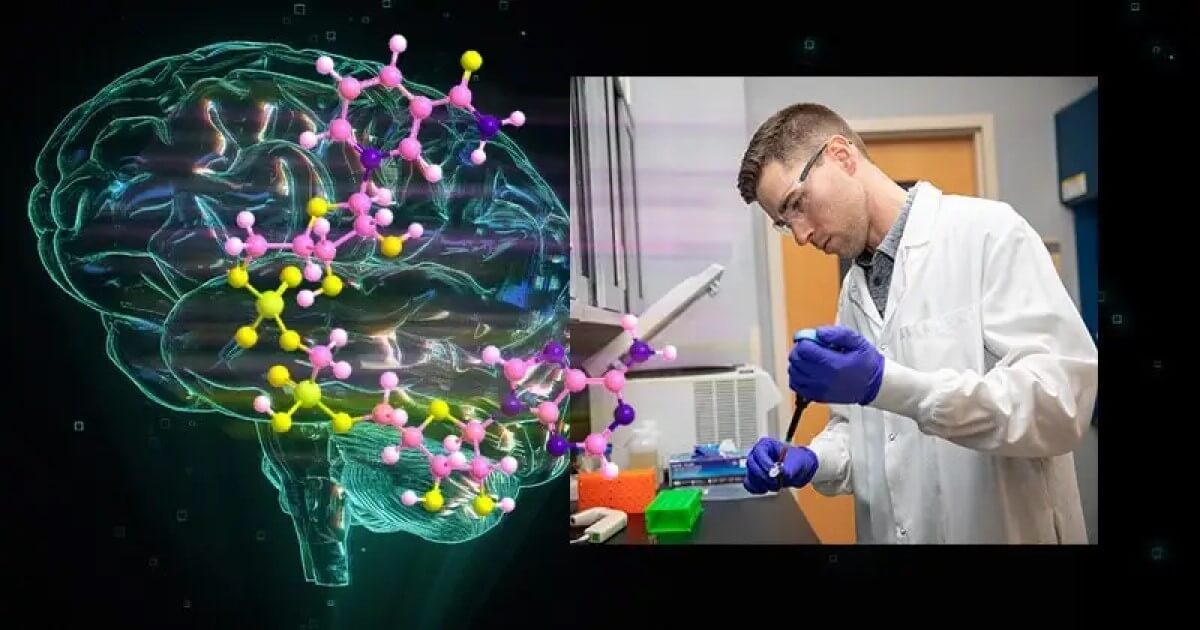Nicotinamide riboside shows promise...
NEWARK, Del. — For the first time, a team of researchers is revealing that nicotinamide riboside (NR), a naturally occurring dietary supplement, can access the brain. The finding is valuable because it supports the idea that NR can alter the biological mechanisms which contribute to diseases like Alzheimer’s. Researchers from the University of Delaware say when people consume NR, it turns into nicotinamide adenine dinucleotide (NAD+), which is crucial for cellular and DNA damage repair. Damage to DNA and cells plays a key role in the development of several chronic diseases.
“NAD+ is gradually lost as we get older or develop chronic diseases. Loss of NAD+ is linked to obesity and other negative lifestyle habits like smoking,” says Christopher Martens, an assistant professor of kinesiology and applied physiology and director of the Delaware Center for Cognitive Aging Research, in a university release. “Because more NAD+ is needed to counteract those negative consequences, it’s more likely to be depleted in the face of negative lifestyle habits.”
In the first study Martens conducted on this concept, he found that levels of NAD+ may increase in the body if people consumed NR, but it wasn’t clear if the effect would expand to other bodily tissues.
“We had some preliminary signs of efficacy, including lower blood pressure in people who had high blood pressure to begin with,” the study author continues. “But until now, it was unknown whether NR reached targeted organs like the brain to have a real therapeutic effect.”
Scientists finds biomarkers revealing improved neuron function
It’s difficult to measure levels of NAD+, especially in the brain. MRI and other techniques that can do this don’t give the full picture and are often costly and impractical to use. So, Martens and his colleagues measured NAD+ directly in extracellular vesicles, which are small particles that are in the blood which come from neurons. This can give researchers a real inside scoop of what’s going on at a neuronal level.
“Each vesicle has a unique molecular signature on its surface, including proteins that give you clues about its origin,” Martens explains. “In our case, we selected vesicles that carry markers that are characteristic of neurons, and so we have confidence that the NAD+ we measured in them reflects what happens in the neurons, and by extension the brain.”

Using samples from their first clinical trial, researchers saw that NAD+ levels increased within the vesicles after six weeks, which provided them with insight on how it relates to brain disorders.
“When NAD+ goes up in these vesicles, we see an association with some of the biomarkers of neurodegenerative disease,” Martens reports. “Particularly, in people where we saw an increase in NAD+, we also saw changes in biomarkers like amyloid beta and tau, which are both related to Alzheimer’s disease.”
Human trials could begin soon
Looking ahead, Martens is already actively recruiting participants for a 12-week study involving NR supplementation in older adults with mild cognitive decline. It’s his goal to see the extent in which increased consumption of this supplement could affect this particular segment of the population.
“They’re coming in with cognitive deficits, and as a result, are more likely to have an accumulation of some of these biomarkers in their brain, so there’s a chance we’ll see bigger reductions in these biomarkers because they have more of them in their cells,” the researcher concludes.
READ MORE>>>>

No comments:
Post a Comment